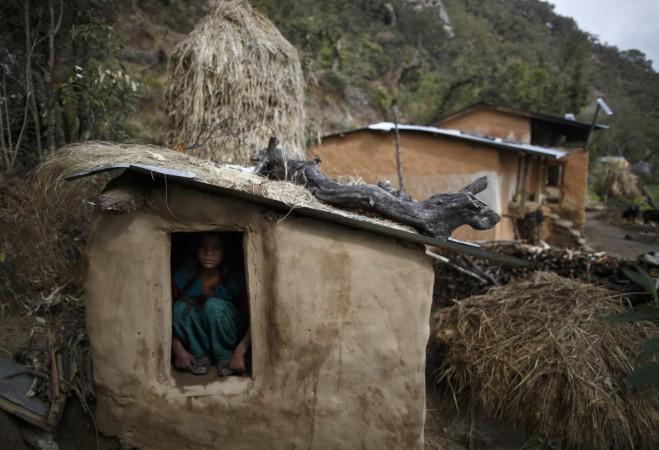
'That time of the month' might be normal for most of the women in the world but certainly not for all Nepalese women. Even in this 21st century, menstruation is taboo that they have embraced so hard that women are being exiled to 'menstrual huts' when they are on their periods.
They are being forced to live in the outdoor huts in extreme conditions despite the ancient tradition being banned more than a decade ago. Recently, a 21-year-old woman lost her life because of the age-old tradition, a government official said on Friday.
According to a Daily Mail report, the woman who was found dead on Monday is believed to have died from smoke inhalation from a fire that she lit in the hut to keep herself warm in the freezing temperatures in the mountain village, government administrator Tul Bahadur Kawcha said.
Sadly, this incident happened despite having strict laws against it. Last year, lawmakers passed a law criminalising the practice which states that anyone who enforces it will face a three-month jail sentence and 3000 Nepalese Rupees.
This is not the first time that a woman lost her life while following the practice – chhaupadi. Last year, it came to the spotlight after at least two women died while sleeping in sheds.
This Hindu tradition stems from fear believing that they will make the gods furious or contaminate the home if menstruating women remain indoors.
Some believe that it is important to observe this practice otherwise it will bring bad luck in the form of death or sickness among family members, The Guardian reported.
Therefore, menstruating Nepalese women in the rural areas are still forced to leave their homes and take shelter in unhygienic and insecure huts or cow sheds where they face bitter cold or attacks by wild animals until their monthly cycle ends.
The belief in the practice is too deep-rooted that it and there are a few visible changes. Though the process of change is slow, it shows a ray of hope. Some families have reportedly progressed a little and are now allowing menstruating women to sleep in secluded indoor rooms, while others reducing the number of days spent outside.

















